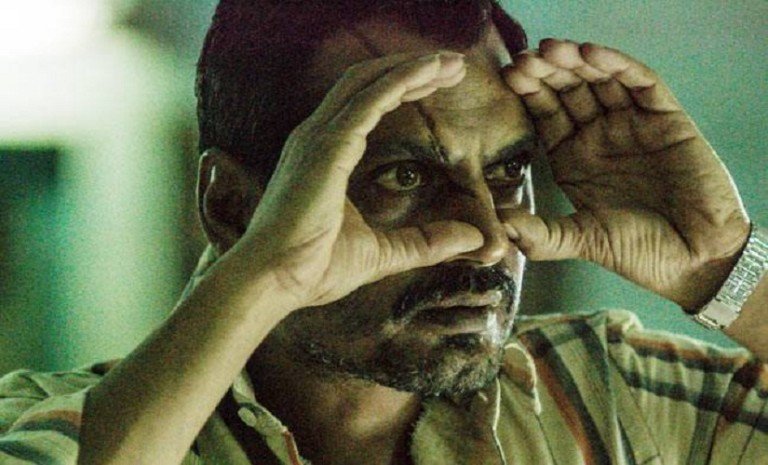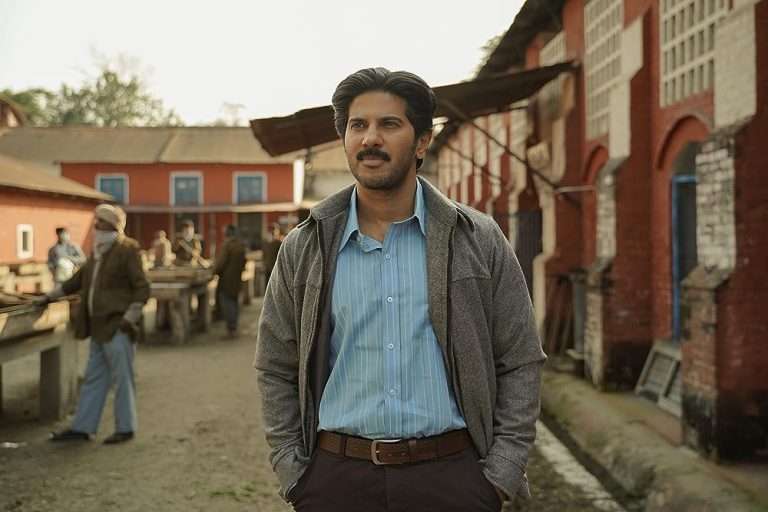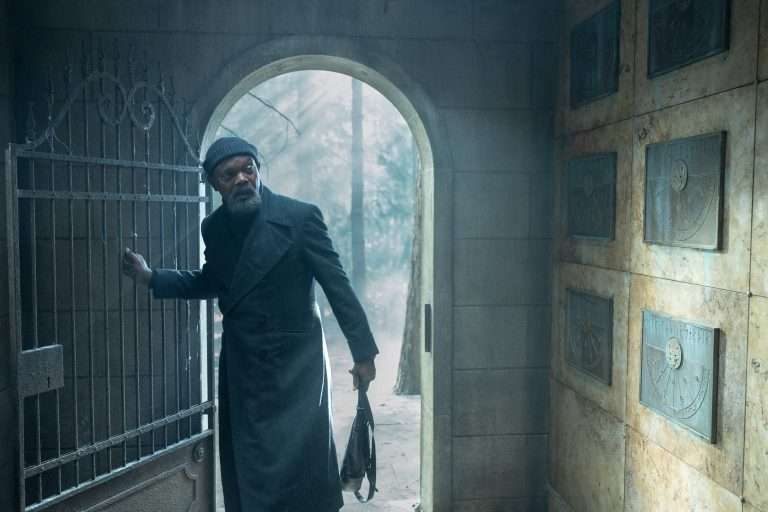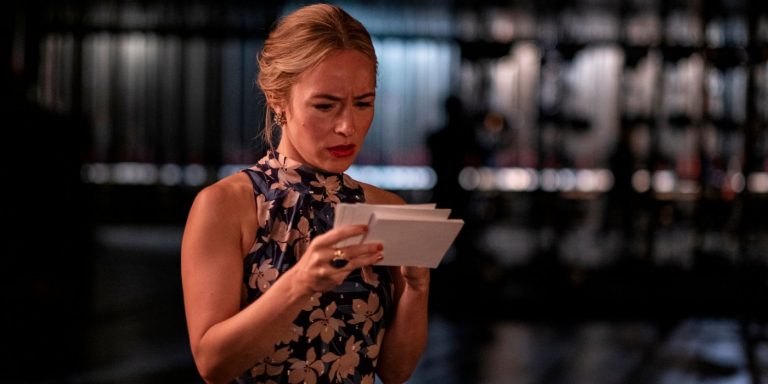Dahaad (2023) Review: Immersion is a funny feeling and one of those rare moments where investment in a story and the passage of time go hand-in-hand, and by the time the story is over, you are given the option to critique that story. It takes you at least a couple of minutes to re-wire yourself because your brain will be entirely convinced that what you just watched is a flawless endeavor.
Not every long-form storytelling venture is successful in maintaining this sense of immersion, even the ones that become acclaimed. It depends on the genre of storytelling, and perhaps as someone who loves the “procedural” format of storytelling, a show that manages to execute it well always gets a positive in my book. Perhaps it is the opening sequence, or the “cold open,” where we see a woman writhing in pain after ingesting a tablet before falling to her death, foaming at the mouth in a dingy toilet.
Subsequent episodes would explore the cold opening by showing the genesis of that sequence by slowly and steadily rewinding through the timeline of events. As a viewer, you will understand the pattern is similar; the perpetrator is the same person. As the cold open slowly becomes clearer to view, the fog lifts from the viewer’s head, and the blur of the camera slowly morphs into deep focus.
What is bone-chilling, though, is that it isn’t a singular woman but several women, and by the time the cold opening of the 7th episode becomes completely clear, you as a viewer are already numb and almost sickened, knowledge of the serial killer’s modus operandi already swirling through your head.
It is a fascinating structure that creators Reema Kagti and Zoya Akhtar (“Made in Heaven”) interweave within Dahaad, the new eight-episode miniseries on Amazon Prime Video. Like “Made in Heaven,” we see that Akhtar and Kagti are very much involved in making sure that every stratum of a web series viewing audience would be able to watch this show.
From a critical perspective, sometimes that backfires because the commercial sensibility of films like “Singham” or “Akira” would fly in the face of a web series that is supposed to be grounded. But perhaps that was the pitch with which actress Sonakshi Sinha approaches this character—a feisty cop who could almost be retroactively called “Lady Singham,” a commercial cop in a web series world.
It’s a deceptively simple method to draw the audience in, and Sinha plays feistiness as the only major character trait of her protagonist, the major armor hiding a softer soul within, who is always on the offensive, always defensive, and has a rigid moral compass.
The trick of the commercial protagonist having these easily identifiable features is both two-fold: it is simple with nary a chance to show a discernible character arc, and it is the distillation of complicated character traits crystallized to an understandable degree such that when narrative texture and nuance enter the picture, the audience or the viewer takes it readily in its stride because the plot is engaging enough that the messaging of the show doesn’t become lost in the shuffle but becomes part of the narrative.
The show starts in the beginning as something very different: an upper-caste Hindu woman belonging to one of the landlords of that small town, Mandawa, has run off with a Muslim man. Now the police force of Mandawa has to search amidst growing political pressure. But within that apparent primary narrative is running the secondary narrative, which is a similar event of another woman missing for two months, having run away with her beau and failing to call her deeply worried brother.
Her brother has been trying to convince the police to look into the investigation. Still, the police are reluctant to pursue it because the woman is an adult and has left on her own accord. More insidiously, that incident isn’t high on the radar because the missing woman belongs to a backward caste. The brother finally takes matters into his own hands by pitching himself within the narrative of the initial case, such that the police take the deed. Gradually, a pattern emerges, both for the protagonists at large and the viewers themselves.
Because unbeknownst to all these characters, the one responsible for the disappearance of the woman has been executing this plan right under their noses. Anand Swarnkar is a Hindi professor, a knowledgeable man by all accounts, and a family man with a wife and a son. He is a man who rides all of the ins and outs of Rajasthan with a van containing his mobile library to teach disenfranchised kids.
But the show doesn’t hide the true nature of Anand’s character from the viewer for very long because it is far more delicious from a storytelling perspective to explore how Swarnkar’s psychopathy is hidden right from under everyone’s noses, as he managed to seduce and persuade women to take his hand in marriage and then murders them through passive-aggressive means. But as the show progresses, you realize that the ease of access with which Anand is exacting his deeds aren’t plot holes; they are already pre-existing armor platings rigged to protect him.
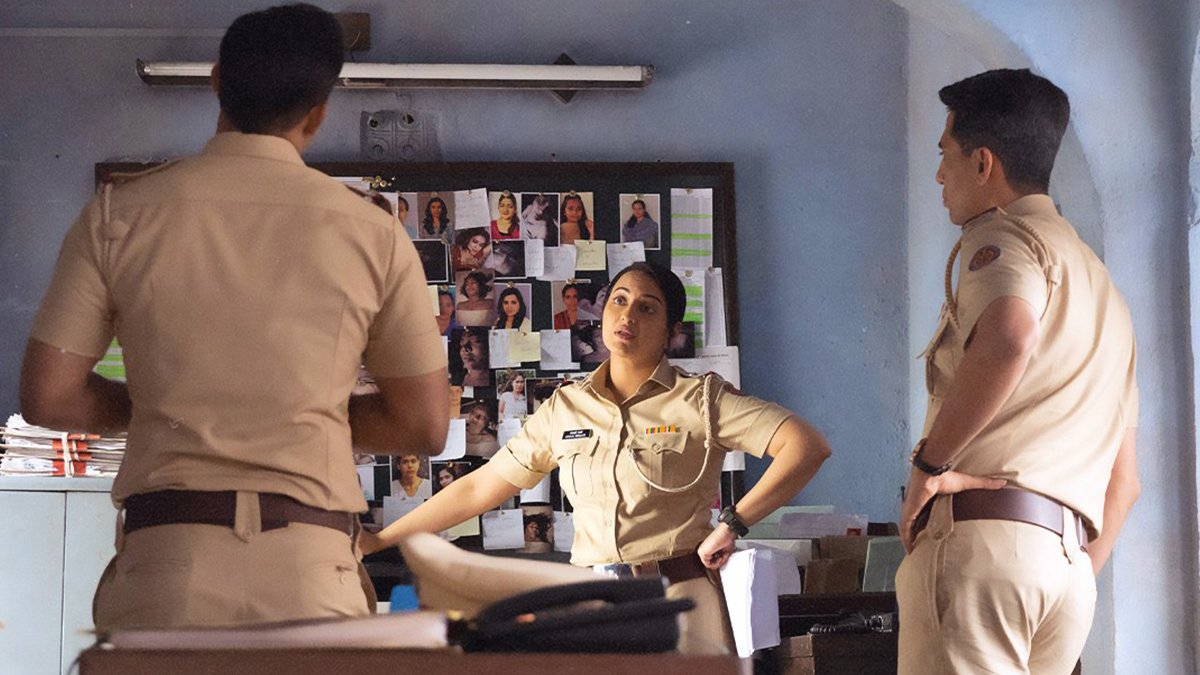
He is an upper-caste Hindu man who doesn’t have to work hard at all to fit into the world at large and pretends to carry an air of normalcy and an unassuming air while carrying out his murder spree to satisfy his bloodlust, which is hidden beneath the veneer of arrogance and righteous anger. The genesis of the righteous anger is rooted in casteism, which is so ingrained within the state and the town where the story takes place that it becomes part of the narrative texture via humor, backstory, and even motive.
The tendrils of casteism, which add to the unfair and rigged nature of the system, make one understand Anjali’s (Sonakshi Sinha’s) feistiness as a defensive armor against the world to combat being doubly marginalized due to her caste and her gender.
While Anand’s armor is already pre-formed, his advantage is so ingrained within him that it takes him so many years and the murder of almost 28 women before he finally slips up. Vijay Verma plays almost an evolution of the male privilege-carrying incel character he had played in Darlings, except now he is a high-functioning psychopath who has his plan perfected down to a science.
This is Verma’s canvas to play on. He plays Swarnakar as both terrifying, charming, and yet petty and angry as well, flitting between all these character traits through a pursing of his lips, a frown at his eyebrows, or just through the coldness of his eyes. But what is even more terrifying is how charming he genuinely is, especially in the conversations he has with the victims. It’s the reason why the cat-and-mouse game and the slow burn of the show work to a simmering conclusion.
The flaw of the show being too long or having moments feeling unnecessarily stretched is a valid one. But again, immersion is the key, which the final episode, however, almost manages to break because of how unwittingly short it is. Clocking in at 45 minutes, it is the shortest episode of the whole show. Even the editing of that final episode feels rushed, as if showing us a highlight reel of the whole season until the last few moments when the show finally reaches its conclusion.
One of the bigger flaws of the show is the lack of a discernible character arc for the two protagonists. Perhaps by design, because they are rigid and completely focused on the task that the plot assigns them, whereas the narrative textures, supporting cast, and richer milieu have the unenviable task of creating a three-dimensional and developed world around the two of them as the deceptively simple plot ratchets up.
Sohum Shah’s Inspector Parghi has a far meatier subplot in terms of the moral dilemma a character can face, especially when stuck in an investigation in the world of “Dahaad.” Shah plays the moral dilemma with magnificent vulnerability and confusion. His character is the quintessential success story of a long-form storytelling format where the nuance of character is paramount.
Conversely, Inspector Devi Singh (Gulshan Devaiah) and his family life are one such subplot that becomes too stretched out. Particularly his conflict with his wife, even though Devaiah is sublime at both portraying frustration and anger at the situation he is facing and also as the progressive father trying to combat the regression of society in a far more nuanced and politically correct fashion.
Also, Read – How Paatal Lok Highlights The Impasse Of The Transgender Community In India
“Dahaad” is a success story in terms of the binge-ability of watching an almost 10-hour-long story. Creators Kagti and Akhtar, along with director Ruchika Oberoi, know how to ensure engagement. It helps that the score by Tarana Marwah and Gaurav Raina is a potent mix of playing just underneath the sound mix to entice the feeling of dread and also overwhelming to increase the suspense and thrill of the chase.
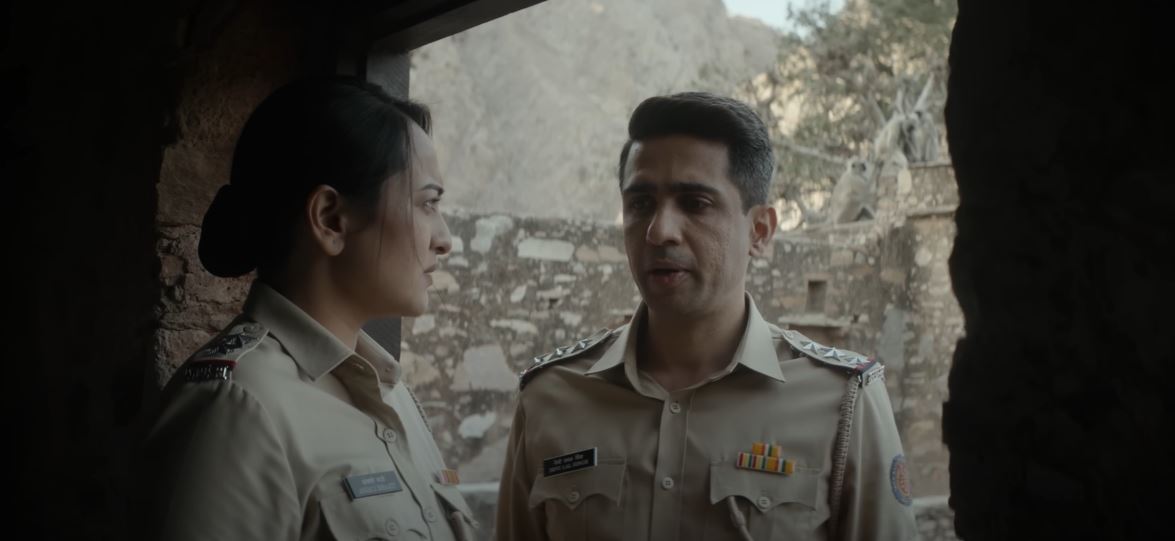
The cinematography by Yogi Sankotra and Tanay Satam is one of the deceptive MVPs of the whole show, juxtaposing gorgeously shot vistas with claustrophobic dark rooms and alleyways, highlighting the social inequalities as well as the complex web of events occurring within this flawed and cruel world.
Sure, the messaging is unsubtle, and the delivery mechanism of the message sometimes strains to become louder. Still, the plot is so engaging that by the time the conclusion feels rushed, you don’t truly care because you feel as if you have lived in a world where the grime of that world can never be truly scrubbed off.
It’s almost fascinating how the two stories that Anand tells the kids have the same underlying message. However, the mechanism of sin changes according to geography—sand for Rajasthan and salt for Goa. Sand and salt are also the markers of tears, the tears of the disenfranchised and marginalized women who are trying to make a mark in society but are always put down by the powers that be.
Maybe I’m reading too much into it, but a show that makes me think this much is deceptively complex amid the basic entertainment of a cat-and-mouse thriller, and sometimes that’s all you need.




